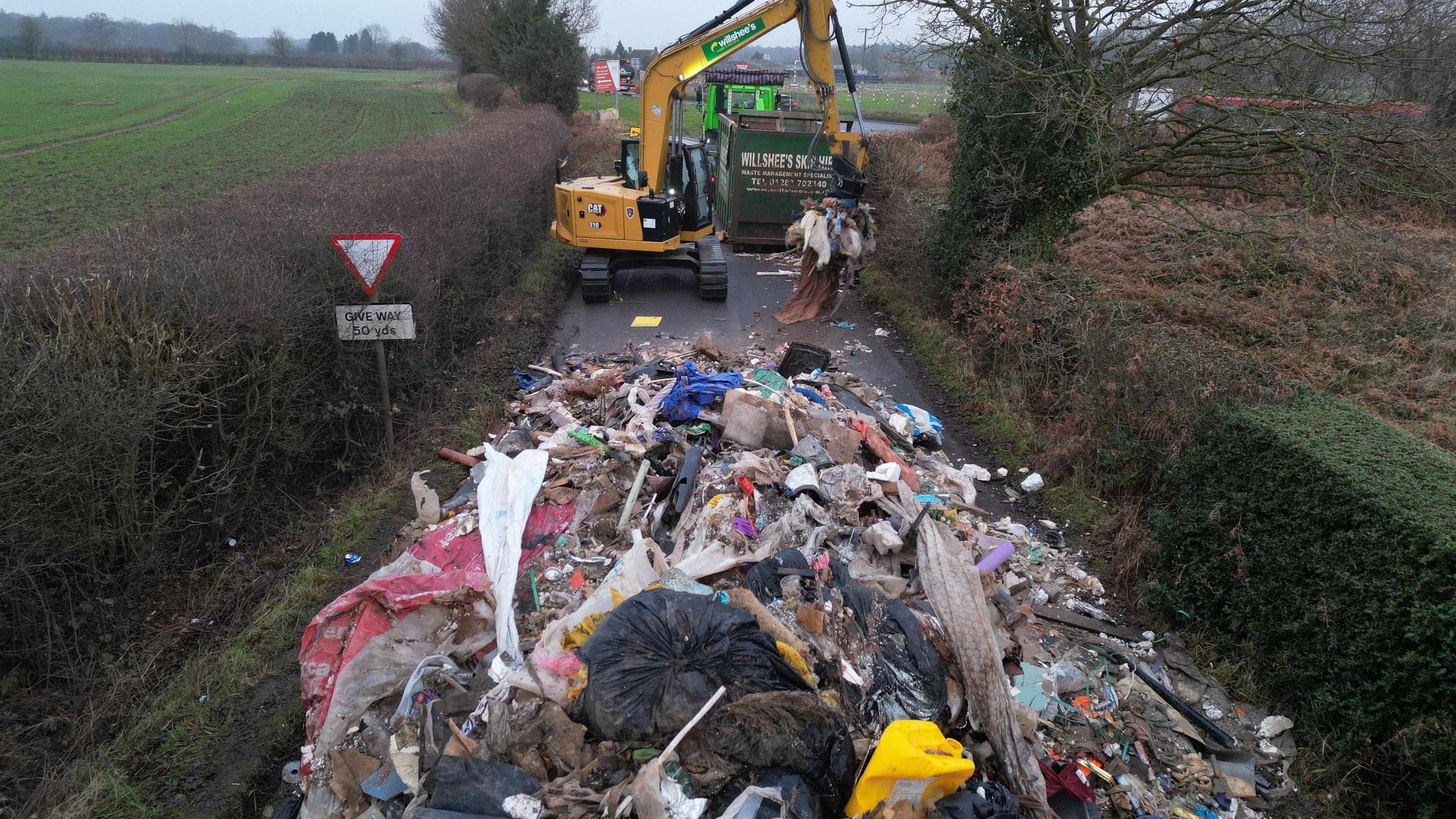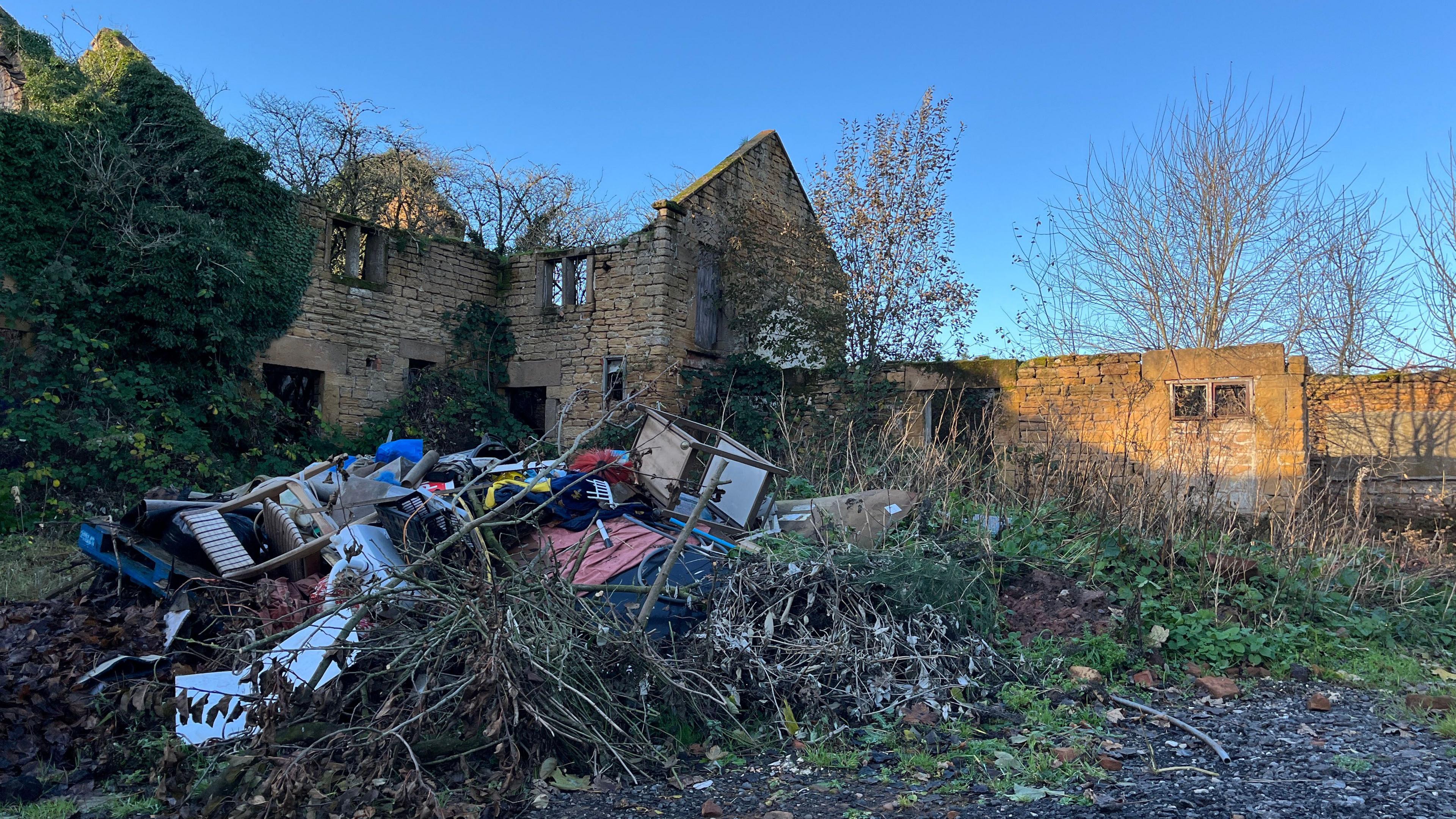What is flytipping?

A pile of waste was dumped on a road in Staffordshire
- Published
Police are investigating who is responsible for dumping a pile of rubbish on a Staffordshire road.
The huge pile of waste was found early on Monday morning by residents.
It measured 2m (6.5ft) tall and about 15m (50ft) in length and blocked the road completely.
The dumped rubbish is an extreme example of flytipping.
Read on to find more about flytipping and what can be done about it.
Why is plastic a problem? Video, 00:02:29
- Published23 July 2018
Plastic pollution washes up on remote island
- Published20 November 2022
'One person's rubbish is another person's treasure'
- Published20 January 2023
What is flytipping?
Flytipping is when people leave large bits of rubbish in places - it is the illegal dumping of waste.
It is called flytipping because the items are tipped or thrown out, 'on the fly' - or spontaneously.
It's a big problem.
Figures from 2023 show there were more than one million flytipping incidents in England in 12 months.
The most common items flytipped are household rubbish like mattresses, electrical items such as fridges or washing machines and construction waste.
Why is flytipping a problem?
The problem with flytipping
The Local Government Association, which represents councils in England and Wales, says that flytipping is horrible for people that live in the area to look at and creates big problems for the environment.
It can attract rats and other vermin and also destroys plants and habitats where animals live.
Last year Nottinghamshire Wildlife Trust told the BBC that flytipping has many impacts on wildlife.
"There are obvious, dangerous, things like broken glass or bottles that could injure mammals," they said.
"And if it's toxic, it could leach into nearby ditches or streams."
What is being done about flytipping?

Most councils have their own taskforces to tackle flytipping, but there is also the National Fly-tipping Prevention group which brings together different organisations to tackle the problem.
In some cases the police may work with the council to investigate who is responsible.
In the case of the huge pile discovered on the road in Staffordshire, officers were able to look through the pile to find evidence of who might be responsible.
People convicted of flytipping face an unlimited fine and, in serious cases, a jail sentence.
